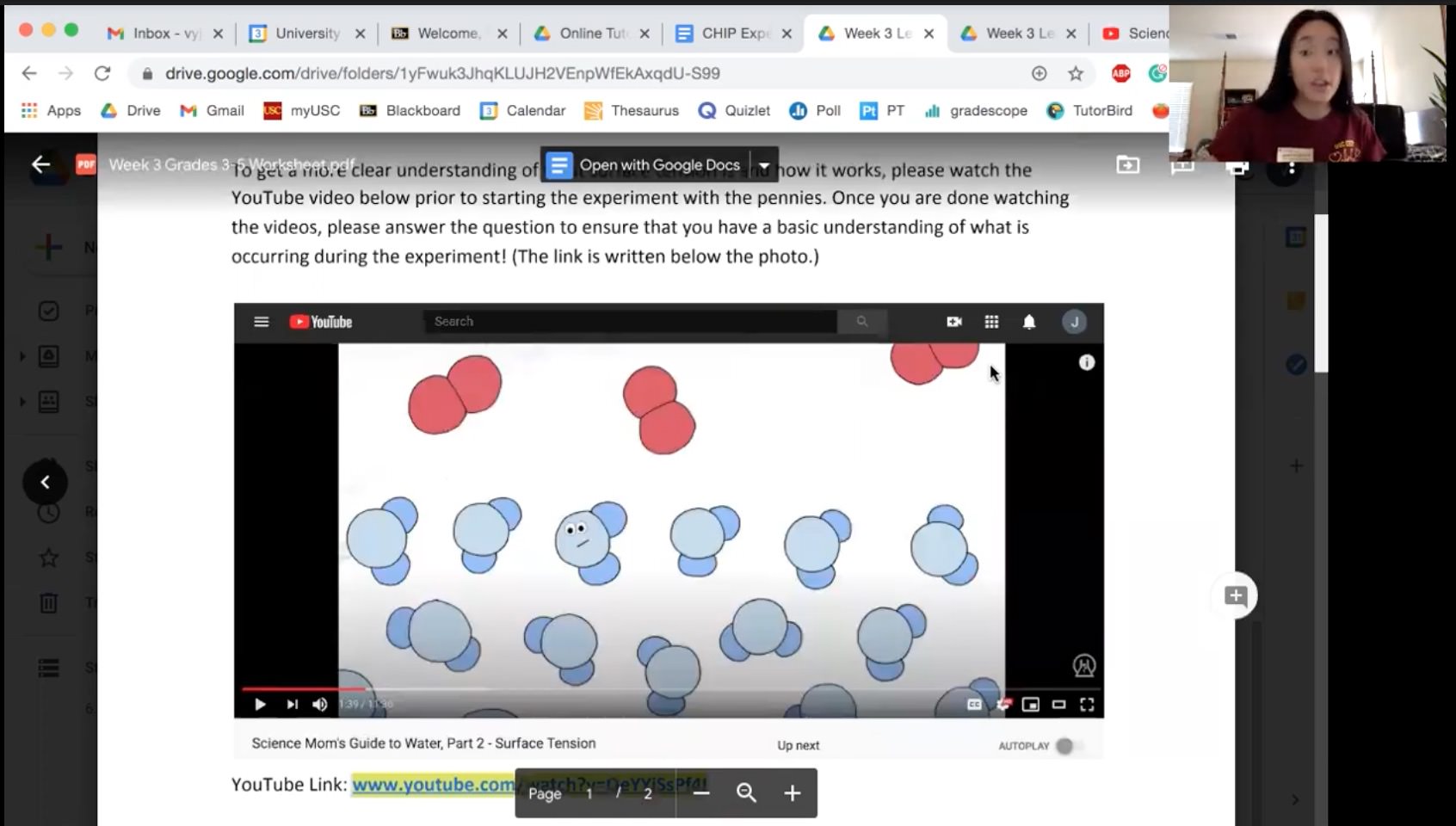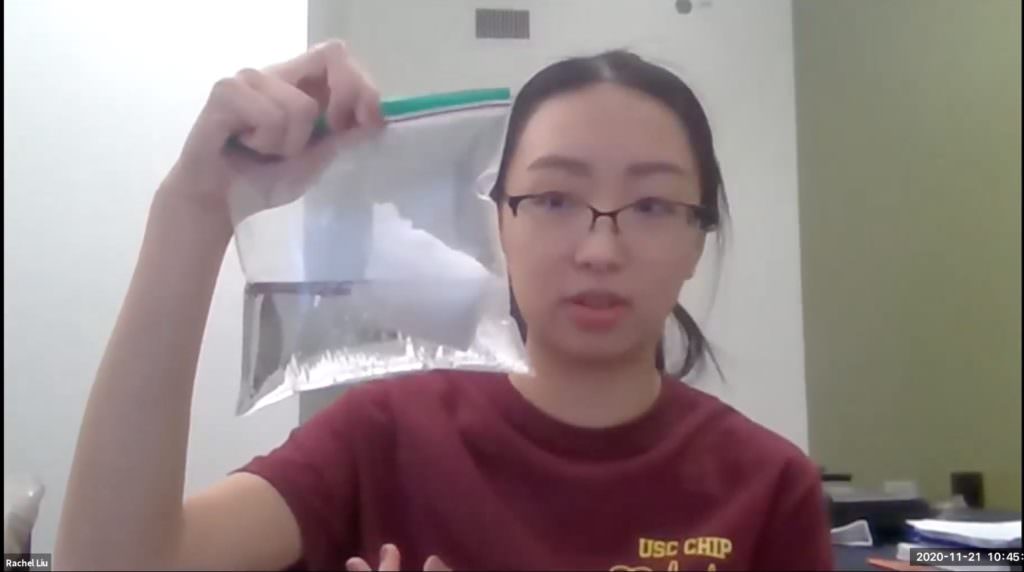USC’s CHIP Brings Health and Science Experiments to the Community

September 30, 2021 – When the pandemic hit, the students in USC’s Community Health Involvement Program (CHIP), like everyone else in the world, had to pivot. CHIP was created with the intention of bringing health justice to the residents of South Los Angeles, and one of its goals is to provide childhood health educational services.
Due to restrictions, in-person volunteering became impossible. They had to get creative. CHIP members came across School On Wheel’s Instagram page and reached out to figure out how they could help.
School On Wheels’s mission is to bridge the educational gap that unhoused students experience—a gap that has been exacerbated by the pandemic. CHIP members set out to develop a series of interactive experiments to help our students learn more about health and science. They created kits to send through the mail for students to conduct with their tutors.
“The main goal of CHIP’s experiment program is to increase young students’ exposure to diverse health topics,” says Rachel Liu, the USC CHIP Head of Experiments. “For each experiment, our CHIP members assembled interactive science kits for each individual student alongside an informational worksheet. We also developed lesson plans and Zoom video recordings to aid the School On Wheels tutors,” she said.
For 2021, CHIP’s experiment program chose four different aspects of health to focus on: oral hygiene, the immune system, heart health, and lung health. “We develop experiments that will teach these important lessons in a fun and interactive way,” Liu said. School On Wheels tutors agree it’s working.
“The students were a lot more engaged because they had something physically in front of them that they could work with,” said Nhi Ha, a tutor who started volunteering with School On Wheels a few years ago. “The lesson plans and instructions were straightforward and clear,” she said.
Nhi reports the younger students liked the worksheets and playing with the supplies while the older students (middle school and above) enjoyed the whole process. “The students felt good having objectives they could focus on and complete in a short period of time,” she added.

One of the stand-out favorites was an interactive kidney experiment. With the help of plastic cups, coffee filters, chalk, and water, the students were able to build a model that demonstrates how the kidneys filter blood to remove toxins. “[It] was a unique way to introduce the function of kidneys to younger students, many of whom probably hadn’t learned about it during their regular classes,” Liu said.
Despite the challenges presented by the pandemic, CHIP is looking forward to the future. “Starting this experiment program during the pandemic definitely put a limit on the amount of “manpower” we could use for assembling and shipping our kits. We’re so excited to continue this partnership with School On Wheels with the help of our general members now that we’re back on campus,” Liu said.
Our students can’t wait to see what new experiments and lesson plans they have in store. School On Wheels is looking forward to continuing this relationship with CHIP and the amazingly creative students who are a part of it.
